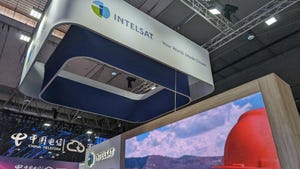ONF unveils global SD-RAN project
A bunch of operators and tech players have come together to try to accelerate the development of open, software-driven radio access network technology.
August 25, 2020

A bunch of operators and tech players have come together to try to accelerate the development of open, software-driven radio access network technology.
There are already a number of initiatives in this area, most conspicuously O-RAN, but it seems some operators aren’t happy with the pace of progress and have decided to take matters in hand. Founding members include AT&T, China Mobile and Deutsche Telekom as well as US tech giants Facebook, Google and Intel.
The initial focus of the project will be on building an open source Near Real-Time RAN Intelligent Controller (nRT-RIC) compatible with the O-RAN architecture. So, while the very creation of this group suggests some degree of dissatisfaction with the efforts of the O-RAN group, there’s the implicit acknowledgement that any incompatibility would totally undermine the ‘open’ ethos. The presence of Facebook shows that diplomatic relations with TIP are strong too.
“AT&T strongly supports the development of specifications and components that can help drive openness and innovation in the RAN ecosystem,” said Andre Fuetsch, CTO of AT&T Labs. �“The O-RAN Alliance’s specifications are enabling the ecosystem, with a range of companies and organizations creating both open source and proprietary implementations that are bringing the open specifications to life… This project will help accelerate the transition to an open RAN future.”
“China Mobile co-founded O-RAN in order to promote both the opening of the RAN ecosystem for multi-vendor solutions and the realization of RAN with native intelligence for performance and cost improvement,” said Dr. Chih-Lin I, Chief Scientist, Wireless Technologies, China Mobile. “We are excited to see the development of an open nRT-RIC and xApps in the SD-RAN project led by ONF, and expect this work to help advance the state-of-art for open and intelligent RAN.”
“Deutsche Telekom is a huge believer in applying disaggregation and open source principles for our next-generation networks,” said Dr. Alex Jinsung Choi, SVP Strategy & Technology Innovation, Deutsche Telekom. “DT has ONF’s mobile core platform (OMEC) in production and we are taking ONF’s broadband access (SEBA/VOLTHA) platform to production towards the end of 2020.
“This journey has shown us the tremendous value that is created when we can build solutions based on interoperable multi-vendor components intermixed with open source components. ONF’s SD-RAN project is leveraging these same principles to help accelerate innovation in the RAN domain, and we are excited to be an active collaborator in this journey.”
So everyone’s making all the right noises about collaboration and interoperability, but it’s still not obvious why that couldn’t have been done under the auspices of existing open RAN groups. The absence of any of the big kit vendors, while not surprising, is also noteworthy as this kind of technology is generally viewed as an existential threat to them.
About the Author(s)
You May Also Like









.png?width=300&auto=webp&quality=80&disable=upscale)

_1.jpg?width=300&auto=webp&quality=80&disable=upscale)


.png?width=800&auto=webp&quality=80&disable=upscale)